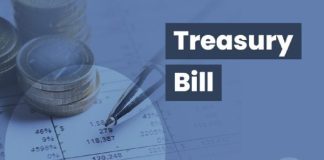Communications Technology Minister, Adebayo Shittu yesterday in Lagos joined other stakeholders in condemning the Communication Tax Bill pending before the National Assembly, warning that it is capable of threatening the achievement of the 30 per cent broadband penetration level set by the National Broadband Plan of the Federal Government.
Shittu, who delivered the keynote address at a forum organised by the Lagos Chamber of Commerce and Industry (LCCI), said the sector has created jobs with its multiplier effect on other sectors of the economy including e-commerce and online shops.
He said the proposed bill has been criticised by experts who argue that over 60 million Nigerians would be unable to afford basic broadband connection.
He argued that if the country must move from the current 10 per cent broadband penetration level, there is need to incentivise the populace through access to low cost data subscription.
Shittu also said the bill was discriminatory because it targeted only the communication industry to the exclusion of other sectors of the economy.
He said rather than overtax an already overburdened industry, there is need for government to stimulate the economy and encourage the adoption of communication service by both the rich and poor.
The minister said though the government needed money to fund projects, the expected earnings of N20 billion per month from the proposed bill may not be in the interest of the generality of the populace.
Also, the LCCI and telcos took their turn to highlight the dangers the proposed tax would have on the economy.
Chairman, LCCI, Communication Law and Taxation Committee, Mr. Bimbo Atitola said the bill, if passed into law, will adversely affect the economy, adding that it could easily be challenged in court as operators will see it as double taxation and illegal since they are already paying value added tax (VAT).
He cited the case between Lagos Inland Revenue Service (LIRS) and Eko Hotel where the court held that sales tax amounted to double taxation.
He said the bill will further compromise third party privacy as safety of data cannot be guaranteed. Atitola advised that additional costs will lead to increase in cost of production, affect consumer behaviour and negate the principle of neutrality.
The LCCI committee chairman further said countries with higher taxes have been known to have lower broadband penetration which is a disincentive to foreign direct investment (FDI).
He urged the National Assembly to suspend the bill or exempt telcos as they are currently over-taxed. He also added that it was ill-timed and that if it must be passed into law, the tax should be reduced to below five per cent. In his comparative analysis, he said Cameroon was considering 0 per cent VAT on all ICT products including handsets and computers while Kenya recently removed taxes on all telecoms equipment in a bid to drive growth.
President, Association of Telecommunication Companies of Nigeria (ATCON), Mr. Olushola Teniola also called for the discontinuance of debate on the bill as it would not add any value to the economy.
He said the telcos are currently made to pay over 15 taxes either directly or indirectly not minding the fact that they have contributed enormously to the growth of the economy.
“The perceived benefits of the tax will erode the gains; there will be decrease in foreign direct investment (FDI) and its implementation would lead to increase in unemployment,” Teniola warned.












